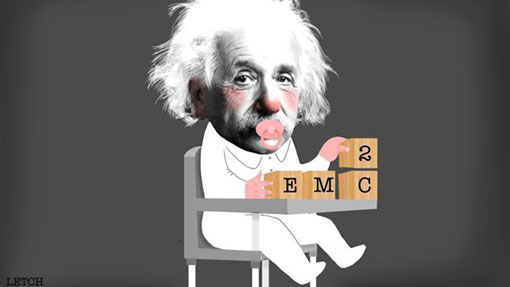894 The smartest way to spend tax dollars
Ross Gittins is the SMH’s economics writer. He has a grip on reality that is admirable … even if you’re not terribly interested in economics, he’s well worth reading.
This week his column is about the best way for our society to invest.
The short of it is: In pre-schooling. Me as a grandfather with five grandsons (yes, all boys) finds this article immensely interesting … just imagine, a child’s brain is largely developed by age six. And, yes, mine are all under six years old.

illustration by Simon Letch
The smartest way to spend tax dollars
For centuries the great advantage has been seen as inherited wealth. But, as The Economist magazine pointed out a few years ago, in the knowledge economy it's probably just as advantageous, maybe more, to inherit your intelligence from two highly educated, well-paid, education-conscious and bookish parents.
Politicians - and Treasury and Finance econocrats - regard early education as just another of the outstretched hands that must be given something, but never enough to fully exploit its potential to improve our wellbeing, social as well as economic.
According to the Ontario early learning study, "the early years from conception to age six have the most important influence of any time in the life cycle on brain development and subsequent learning, behaviour and health".
Early experiences and stimulating, positive interactions with adults and other children are far more important for brain development than previously realised, it says.
British research shows 16 year olds who attended at least two years of preschool were three times more likely to take a higher academic pathway after leaving school.
It's easier to get kids up to speed in preschool than at any later level of education. Clearly, the smart way to improve the performance of the whole system is to start at the bottom. Make sure we get preschool right, and the benefits will flow on to schools, TAFE and uni.